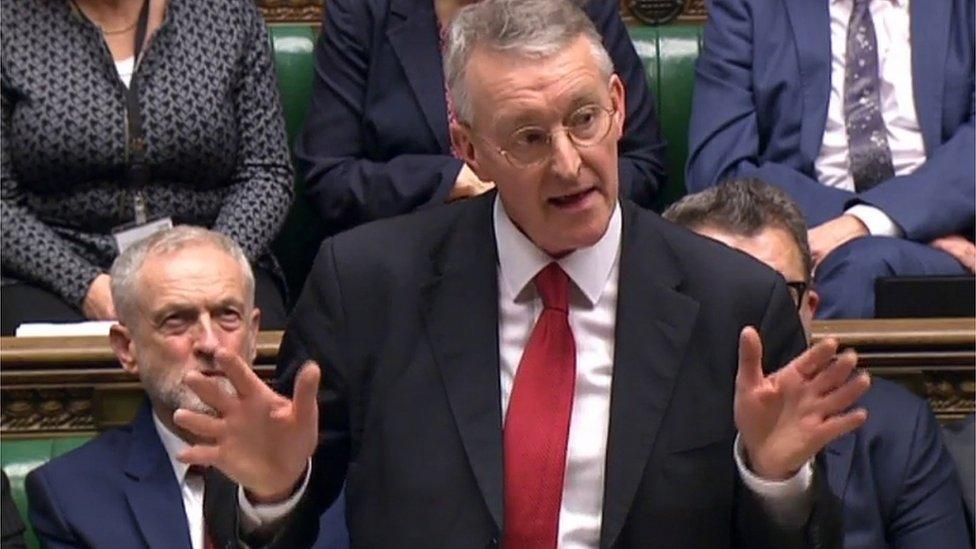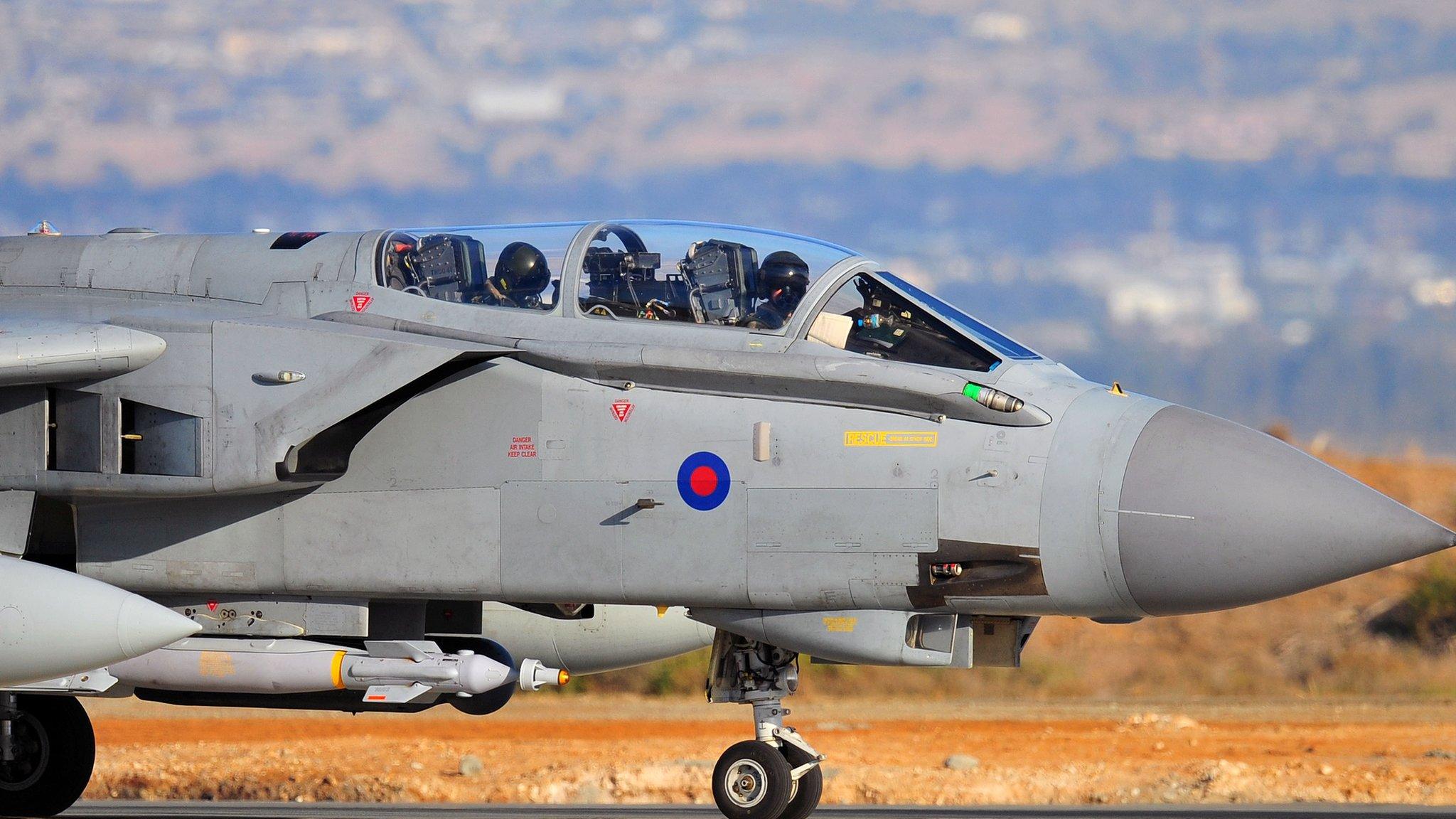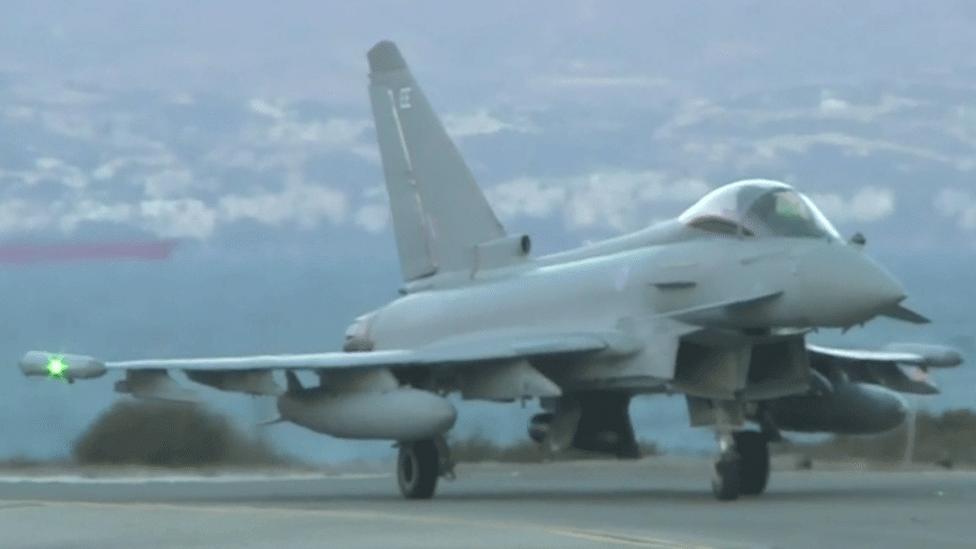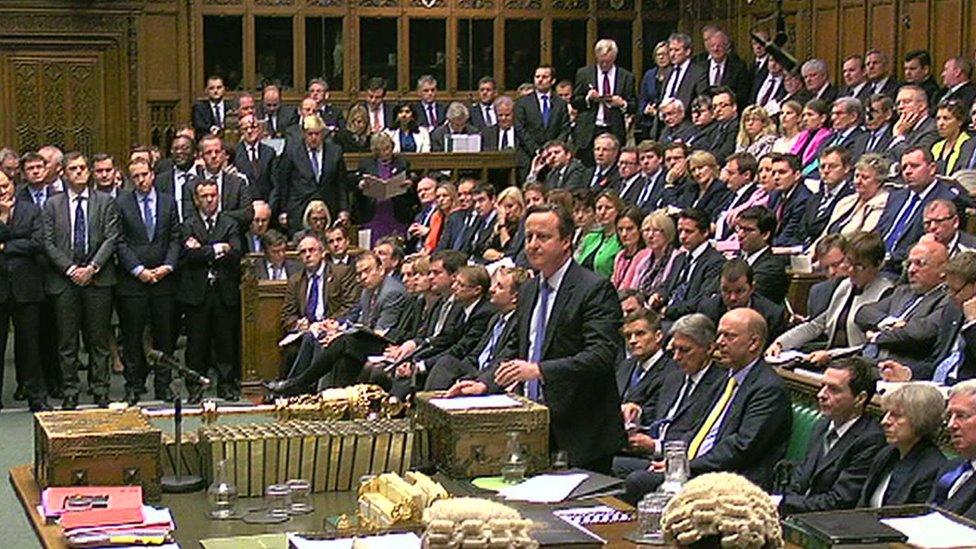First Minister's Questions: The Syrian debate goes on
- Published
The leaders of the main political parties in Scotland have sent their good wishes to RAF personnel involved in air strikes on Syria.
Not long after the bout of questions to the First Minister subsided, I chanced to glance at my email inbox. There sat a communication from the Rt Hon Lord Foulkes of Cumnock.
Despite being a Hearts supporter, George Foulkes is resolutely amicable. He is also a serial politician, having served in two councils, the House of Commons, the Scottish Parliament and now the House of Lords. Plus, I believe, a spell on the Parliamentary Assembly of the Council of Europe.
So he knows a thing or two about discourse and debate. His email suggested there was a shortfall in the Caledonian version of democracy which he proposes to remedy with a Scottish Senate to revise Holyrood legislation.
With the political focus resolutely upon Syria - including at Holyrood - this intervention initially struck me as faintly surreal.
Then I thought again. Is it not gloriously welcome that democratic debate - including scrutiny of the very structures of democracy themselves - should continue apace, even as RAF jets are engaged in conflict?
The six Typhoons left RAF Lossiemouth shortly after 08:00
Such, indeed, was the tone during exchanges in the Holyrood chamber. The Syrian question has been deeply divisive - between parties, within parties. Yet our MSPs rightly contrived to stick to the democratic day job - scrutiny, argument, debate - while, of course, opening with remarks about the bombing campaign.
And so we had arguments and exchanges about the health service, university tuition, the steel industry and climate change - all cocooned within the over-arching concern for developments in the Middle East.
Internal divisions
Nicola Sturgeon opened proceedings with a direct reference to Syria, in the aftermath of the remarkable Commons debate and vote.
With RAF jets departing from Lossiemouth and elsewhere, she said the "thoughts and good wishes" of the people were "very much" with those serving in conflict.
But she restated her view that the Commons choice was wrong. Ms Sturgeon said she was "deeply troubled" by an endeavour which she said lacked a clear strategy, lacked an exit plan and was contrary to the expressed wishes of MPs from Scotland.
I spoke earlier of internal divisions. Those have been most evident and most stark in the case of Labour.

Hilary Benn gave an impassioned plea for air strikes in his House of Commons address
It is not common, in truth, for a Shadow Foreign Secretary to sum up a debate with brilliant rhetoric - while taking a line which departed markedly from that offered by his leader, who had opened for Labour. Such was the case with Hilary Benn and Jeremy Corbyn.
Labour insiders are all too keenly aware that this potentially bodes ill for their party, at least in the short term. But, for now, the Syrian question is too critical, too grim, to major on that. For now.
Kezia Dugdale, who leads Scottish Labour, responded deftly to Ms Sturgeon's opening remarks. Ms Dugdale noted that she did not support the policy of air strikes - but that it was vital now to unite in support of the "brave" service personnel.
For the Conservatives, Ruth Davidson also offered warm support to the air force - while stressing her belief that the air strikes were "necessary".
With David Cameron warning that the involvement in Syria may be prolonged, there will be time in the period ahead to debate the consequences thoroughly. At Westminster. At Holyrood.
Perhaps, eventually, who knows, in Lord Foulkes' Senate. Although I doubt that.
- Published3 December 2015

- Published3 December 2015

- Published2 December 2015
